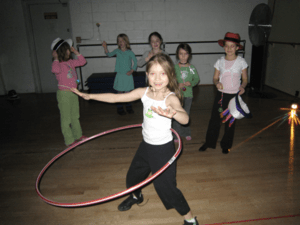Second Grade Sexism
“Cutting the tie” was just about the coolest thing you could do in my second-grade class. This, in turn, made Mr. Arthur just about the coolest teacher in the elementary school. Once a week he would honor a student for their good behavior in class by letting them cut off his tie just below the knot and tape it on the wall next to the other ties of honor. In theory, it was a perfectly good system.
Given that there are roughly 40 weeks in a school year and give or take 20 students in a class, every kid should get to go twice. In reality, it never turned out that way. I never cut that darn tie. I was the perfect student; I always raised my hand to participate, I never called out, I voluntarily helped other students, but I never cut the tie. And then there was John. John called out all the time, was incredibly disruptive in class, and was disrespectful to both the teacher and the other students. Ten years later, I can still distinctly remember all four ties that John cut: a red one with little gold symbols, a navy blue one with the sun and moon, a dark red one with embroidered polka dots, and a light blue one that faded into purple at the bottom.
This happened because John had these things called “blurt alerts.” This cleverly named system referred to seven cards that John received at the beginning of the week, and were taken away each time he disrupted class. If he still had all seven cards by the end of the week, he got a prize: dessert at recess, being the line leader for the day, and, yes, cutting the tie. The same can’t be said for another equally disruptive student: Callie Brown. Callie, like me, never cut the tie, and one would often hear Mr. Arthur say to her: “Ms. Brown, stick around”–which sort of rhymed in Mr. Arthur’s Boston accent. To the rest of the class, “Ms. Brown, stick around” meant that Callie was in trouble for talking in class and would be staying inside for recess, again. Even as a seven-year-old, this made me so angry I’m sure that steam came out of my ears at one point or another.
Callie and John behaved exactly the same in the classroom. They both called out of turn and were sassy to the teacher, but John got one treatment while Callie got another. John had his cards-based reward system for when he behaved, but Callie just got punished for behaving badly. How unfair is that? I didn’t get it. So what that Callie was a girl? So she had a vagina and would one day have boobs, but did that mean she deserved different treatment than John? I just didn’t get it. I didn’t know about sexism or the patriarchy or feminism yet, but I didn’t need to know, beyond a shadow of a doubt, that this was wrong.
I knew this was wrong, but I didn’t do anything about it; neither did anyone else. We all, John included, walked right past Callie out to the playground after Mr. Arthur said his infamous “Ms. Brown, stick around.” I remember feeling guilty even then, and, you know what? I still feel guilty. I should have said something for Callie, because somewhere in the back of her head, Mr. Arthur planted a seed that she deserved less than her male peers. No one deserves to feel like they deserve less than someone else because of their gender.
For years, I let that guilt weigh me down and fester; I nearly cried every time someone said, “stick around.” But those negative emotions did nothing to benefit others. Now, that lingering guilt is part of what encourages me to stand up for other people when they are being discriminated against. Remembering what it feels like to do nothing is now what drives me to do something when I witness similar injustices.
I don’t know what I could’ve done for Callie; maybe she’d be a totally different person if I had stood up for her. Maybe she would have more self-esteem or be more confident, but then again, maybe not. Had I stood up for Callie, at least she would have known that there was someone looking out for her, that she was not alone and that someone else recognized that she was being treated unfairly. Challenging small and everyday acts of sexism is something that each and every one of us can do, and by doing so, we can make a difference.
*Names have been changed to protect confidentiality.
This piece was written as part of JWA’s Rising Voices Fellowship.







